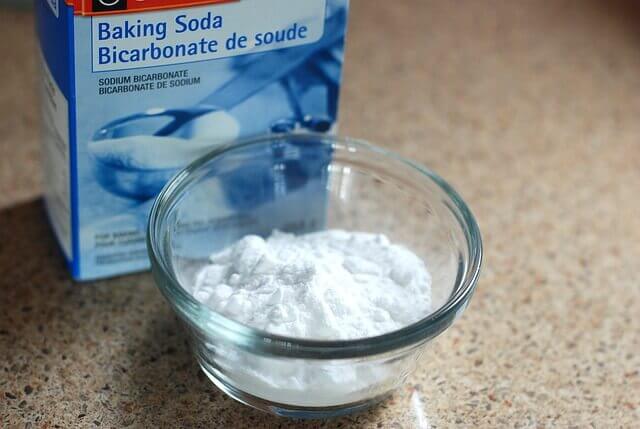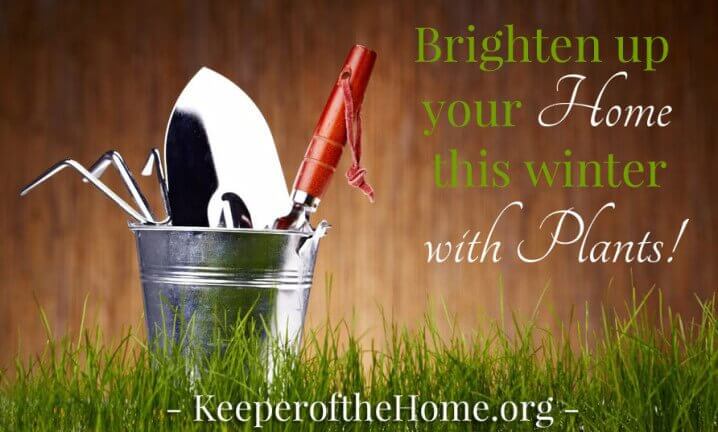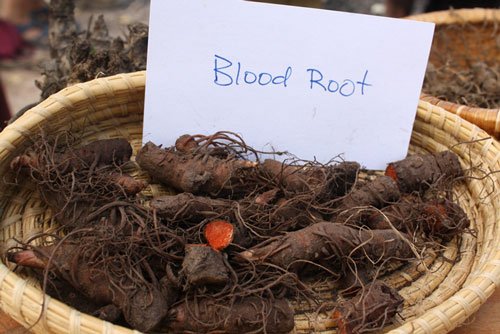Living with PCOS: Some Q&A

Hello, fellow PCOS’ers!
I hope you don’t think that I have forgotten or abandoned you in light of my current pregnancy! In fact, it makes me even more eager than ever to continue to talk through the issues surrounding PCOS. I hope that I can offer encouragement, as I keep sharing about the lifestyle changes that I have made and the natural ways that I have been able to address PCOS, as I really believe that God has used these changes to bring healing and allow me to conceive and carry these precious babies.
To get back into this series, I thought I would answer some questions that landed in my email a while back, since I think that they are relevant to many of you:
1) Do you take anything for your PCOS?
I have never been on Metformin or any other specific PCOS medication, although I did do a brief stint on birth control pills at the beginning of my diagnosis, before I began to learn more about the natural options available to me.
Here is a brief list of some of the natural remedies/supplements I have taken over the years. At some point, I will post about these things in more detail, but for now I will list some of the things that I have taken:
- Natural Progesterone Cream– This was one of the earlier supplements I took- I think it helped somewhat, though I’m not sure that I would go this route again
- Seed Cycling– This is a method of using ground seeds (like sunflower, sesame and flax) along with healthy oils (flax and evening primrose oil), during the two different parts of the cycle (Days 1-14 and Days 15-28). This was recommended by my previous Naturopath and I think that it did help to promote regulation of my cycle. Here is an article on what seed cycling is all about.
- B vitamins, especially B6– The B vitamins are important for hormone balancing, especially B6. This is a good supplement for anyone with hormonal imbalance, and also helps in early pregnancy as well.
- Essential Fatty Acids– At first, I took Flax Oil, because that is what I had heard and read the most about. Over the years, I have come to believe that Cod Liver Oil can be an even better choice, although I think that both are beneficial for their Omega-3 fatty acids, which are important for hormone balance and which most of us are lacking in.
- Vitex or Chasteberry (same herb, different names)- This is a herb which can be taken as a capsule, a tincture or a tea. I have taken it in capsules to be cheaper at times, and also in tincture form, which is more expensive but also more effective. This herb is commonly used to support hormone balance and regular cycles. It takes about 1-3 months to begin to be effective, but after that time, I found it to be one of the most helpful things that I took, as far as seeing obvious effects in a more regular cycle and ovulation.
- Homeopathics– I will have to try to research exactly what these were, but my Naturopath had me on a series of homeopathics, which I took on Days 1, 7, 14 and 21 (each one was different).
- Rhea’s Herbs Female Correction– I didn’t actually get to take this, as I had bought it to begin right before I found out I was pregnant. Obviously, I can’t vouch for it’s effectiveness, but it is a high quality herbal tincture, using herbs that have traditionally been used for female hormone balancing.
2) If not, do you just follow the Nourishing Traditions book?
Although I’ve tried the above-listed things, the most important thing that I have done (in my opinion) is to make huge dietary changes. I have spent the past 6-7 years slowly making these changes, such as decreasing and cutting out refined sugars and grains, increasing my fruit and vegetable intake (and moving towards organic to avoid pesticides), dropping all conventional meat, dairy, and eggs (replacing them with grass-fed, free range and organic), and moving to completely un-processed and un-packaged foods.
Though I have only been using Nourishing Traditions for the last couple of years, I have seen the most change during this time. I really believe that my body especially needed the high-quality proteins and fats that this book encouraged me to make a bigger part of my diet (through grass-fed meats, free-range eggs, wild fish and fish oil, grass-fed and raw dairy, coconut oil, etc.), and that they have played a role in improving my hormone balance.
3) Do you have the insulin problem (insulin resistance) and if so, how do you deal with it?
I do have insulin issues, although mine are not as pronounced as some
women’s. This may be because I have been able to maintain a healthy
weight, ever since I began to drop the junk foods I had been accustomed
to eating and turned my diet to focus on whole foods instead. I think
that keeping my weight maintained is crucial for improvement with
insulin resistance.
Other things that I have done, or would recommend for those who especially struggle with this area are:
- Avoid all refined sugars and grains, as these are the worst offenders for insulin and blood sugar imbalances
- When eating anything with sweeteners, even natural sweeteners,
eat some protein and/or fat with it (such as a piece of cheese, a few
spoonfuls of yogurt, a glass of milk, a handful of nuts or seeds) at
the same time, as this helps to maintain more steady blood sugar
levels. - Try using supplements such as Chromium and Cinnamon (both readily
available at any health food store), which support healthy blood sugar
and insulin levels - Get active! I notice that I have more difficulty with my blood
sugar balance during seasons when I am less active, such as in the
winter. Any sort of exercise or activity is beneficial, whether it’s
going to the gym or for runs, or simply taking a walk or doing some
gardening (or even vigorous housework!). Every little bit helps, and the more regular, the better.
4) What advise would you give me to treat PCOS naturally?
My biggest pieces of advice would be to:
- Avoid conventional/pharmaceutical treatments, such as birth control
pills or Metformin or others. I do know some people who have used Metformin
briefly to start getting their insulin under control and begin to lose
some weight, and then get off of it once they have seen some progress.
This is one way to use Metformin more sensibly, although I
cannot think of any way that birth control pills will contribute to
long term healing or balance. Generally, I would say to avoid these and
instead begin to pour your efforts into lifestyle changes. - Begin with your diet. Here are my Top 3 nutritional changes
that I would recommend to anyone starting out and looking for a few
things to begin to change. Some great reads to get your going are The Maker’s Diet
and Nourishing Traditions,
which will help to explain a lot of the why’s behind what they are
suggesting. Don’t expect to make all of the changes at once, but pick
one or two things and get started! - Try to find a reputable Naturopath. There are so many wonderful
supplements, herbs, homeopathic remedies, etc. out there that can
really make a difference, but unless you have a lot of time to spend
really digging into the research yourself, it can be a bit overwhelming
at first. By seeing someone who works with these issues regularly, you
reap the benefits of their experience and recommendations and it gives
you a great starting place. - Bring it before the Lord. We don’t deal with this on our own, but
only with the help and grace of our good God, who knows us and our
bodies intricately. I am grateful to God for the teaching and resources
that He has brought my way, and also for the continual reminders to
bring all of my efforts back into submission to Him. I am learning to
trust Him as my Healer, and not myself or anything natural that I do.
Are there any particular concerns or questions that you would like to have answered? I definitely do not have all the answers, but I’ll try my best! If you have been dealing with PCOS naturally, I’d love to hear some of the natural things that you have tried and the dietary changes that you have made!





No questions, just wanted to tell you how excited i am to find a place where many of my concerns (about food quality, natural living, following the will of God) are expressed. I’ve tried different herbs without much difference, but am interested in trying those you speak of. (BTW, i read recently that the FDA has declared B-6 a “drug” & will limit supplements & other items stating they contain it. I have a hard time believing this will occur, i hope not!)
Thank you for your site. It meets a big need!
I recently stumbled on your Blog – and saw today’s post – I have PCOS – a recent diagnosis. We have one child and are desperately wanting a larger family. And it sounds like you’re on your way to growing a big family. I can’t wait to dive into the “PCOS” section of your blog for encouragement and knowledge. I know it isn’t an accident I came across your Blog! He works in the smallest of ways, I know He will work in my body as well. God bless you!
I have used biologically identical progesterone one days 16-26 of my cycle and this helps me. Dietary have been the biggest thing.
I don’t have PCOS but I was having all kinds of problems regulating my cycles/hormones after my last baby. My GYN finally suggested adding B6 supplements. It took about 4-5 weeks and I started noticing small changes for the better. Now 3 months later everything is back to prepregnancy levels. (So I am really hoping they do not limit B6.) Thanks-love reading all the information on your site. I have learned so much about nutrition.
What a marvelous post. I’ve always been curious about PCOS, and I really appreciate your straightforward information. Thanks for sharing 🙂
xo, Amanda @ http://www.kiddio.org / http://www.housemade.org
I do have a question…
Right now my husband and I are living in Haiti. Before moving here I was in the process of making some major dietary changes (much of what you suggested). In some ways this move has made things easier (ex. Not as many “convinent” foods) but in other ways harder (I don’t have any natural food stores- well, not even a regular grocery store!).
For awhile I just ate only fruits and veges. That helped me lose some weight but hasn’t helped my cycle come back.
I think that I have too many refined starches in my diet, maybe. My only options however are: potatoes, white rice or white flour. I’m not sure what is the best option or if I should just cut them all out completely.
As far as dairy…
I can get eggs but no milk except powdered. I did finally find a place that sold olive oil (I only had soybean) and real butter.
As far as meat…
I have canned pork and beef. Hopefully, soon, we will butcher a cow that we recently bought, which has been fed only grass and millet. That should help on that front.
Now, as for my question: What do you think, keeping all this in mind, I should try to center my diet around? Do you think just eating fruits, veges, eggs and the good beef is my best bet, cutting out starches completely?
Any advice would be wonderful!
Tasha
Thanks, Kathryn 🙂 And I sure hope B6 doesn’t become “medicalized” and unavailable to the public through health food stores. I get really frustrated when the government starts trying to step in and take measures like that, but I’ll try not to get on my soapbox, lol!
Tracy, I’m so sorry to hear about your diagnosis, but I’m so glad you’re here! Welcome, and I hope you find some helpful information in this series!
Tasha, sounds like the biggest thing for you right now is to get the good quality protein and fats, since you’ve been having to work with mostly veg and fruit. I would definitely do eggs, butter and olive oil as much as you can- good finds! And the canned pork and beef is better than nothing, but the cow you’re talking about sounds much more promising. 🙂 Is fish or any seafood available to you at all? That would be great for your fatty acids!
I think the potatoes are useful, if scrubbed and eaten with peels for extra fiber and nutrients. I don’t think that you need to completely avoid the white rice, but I would probably limit it to a couple of times a week. Can you eat the millet that the cow is getting? Millet is an excellent source of nutrients, and a wonderful whole grain!
One thing you could do with the veggies and fruits is ferment them- this adds more nutrients and aids digestion. And when you butcher the cow, be sure to save the bones to make lots of soup broth- this would really help you to get a lot more minerals, especially calcium (from the bones).
Honestly, Tasha, it may not feel ideal but you’re eating much more “real” food than most people are, so you’re not doing too badly! Sounds like you’re doing the best you can with what you have. 🙂
I found your blog through the Nourishing Gourmet, and I have to say I’ve been so happy to have made the effort to follow the link! Your posts have been such a blessing!
One of my dear friends has been diagnosed with PCOS. She has tried many “remedies”, but none seems to have worked. I will be passing along the link to this blog, and would like to add it to my own, if you don’t mind. Thanks!
Nourishing Traditions promotes such a healthful way of eating. I’ve known so many people who’s lives were turned around by returning to traditional foods. (Mine included.)
Thanks for your post, and blessings on your journey!
-KristenM
(FoodRenegade)
I have been dealing with PCOS for over 12 years (age 30 now) complete with all of the classic symptoms, including infertility. For me, Western meds and many herbs didn’t not work and in some ways made my health worse.
I was able to heal myself, go from a size 14 to a 6, finally have clear skin, and ovulate on a regular basis through lifestyle changes.
In terms of diet, I DON’T eat sugars, soy, gluten, dairy, most other grains and processed foods in general.
I take kelp (12 g/day), which was the missing link in addition to the usual suspects of B, oils and so on. Though my thyroid tests always came out “normal”, they numbers were still probably low for me. The kelp makes all the difference in the world for me. My body was especially resistant to everything published (natural or western) and it turns out my thyroid was the trigger in my PCOS.
I was running, doing hand weights and so on sever days a week but since I was recently diagnosed with MS and had to cut out the running due to vision and balance issues (now I use a spinning bike).
Hi ~ I just recently found your website and I was curious if the above mentioned B vitamins, flax oil, and vitex should all be taken simultaneously or is that overload? I have PCOS and am currently on Metformin but I really don’t want to take it any longer. I have also been put on birth control which I finally said “no more” and I also took Spironolactone to lower the androgen hormones. I am no longer taking that but I’m noticing hair loss and acne returning. Do you know of any natural ways to help this symptom?
@Carleta, I don’t think it’s overload to take those 3 things at once. Although flax oil seems to be best taken in accordance with the monthly cycle (I can’t remember, but it’s either for the 2 weeks before or after ovulation, but not as good to take it just all the time). Another option for the balancing Omega 3’s is cod liver oil.
The best way to deal with this is to get your blood sugar under control- by getting active, lose weight if needed, less sugars/starches, eating a whole foods diet with lots of fiber and nutrients. Chromium and Cinnamon can also help to balance blood sugar naturally.
I am really interested in the b6 you mentioned. I have been taking pure encapsulations b6 for a few years, (along with b12 shots and biotics research methylfolate plus) but recently think that they have been bothering my stomach. Because I sometimes still have cycles too far apart I was thinking I probably still need to continue taking them. I was wondering what was the brand and dose you took. Thank you!